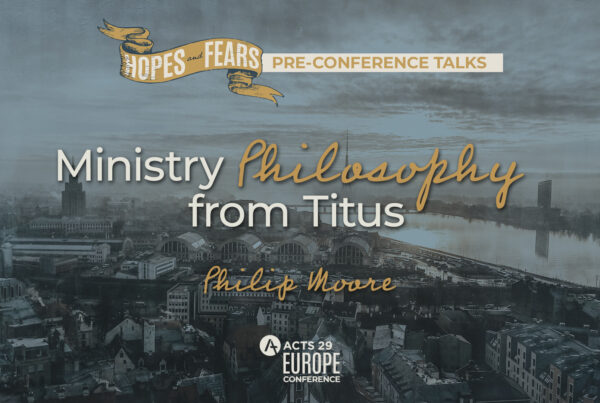Christian Smith, Professor and associate chair in the Department of Sociology at the University of North Carolina at Chapel Hill and director of the National Study of Youth and Religion researched the religious and spiritual beliefs held by U.S. teenagers. After hundreds of discussions about religion, God, faith, prayer, and other spiritual practices, they summarily refer to their beliefs as “Moralistic Therapeutic Deism” (MTD). They describe MTD in the following way:
- A God exists who created and ordered the world and watches over human life on earth.
- God wants people to be good, nice, and fair to each other, as taught in the Bible and by most world religions.
- The central goal of life is to be happy and to feel good about oneself.
- God does not need to be particularly involved in one’s life except when God is needed to resolve a problem
- Good people go to heaven when they die.
Moralistic – Do Good.
This is the belief that the Gospel can be reduced to improvements in behavior. This moralistic approach to life believes that central to living a good and happy life is being a good, moral person. That means being nice, kind, pleasant, respectful, and responsible; working on self-improvement; taking care of one’s health; and doing one’s best to be successful.
The Christian leader that is inclined naturally as a prophet has a proclivity toward moralism if he avoids the cross as the means of justification and sanctification. We shame our family and congregation into doing better and we deal harshly with those who fail to perform to the level of acceptable behavior. To deal with the pressures of ministry, a man declares himself as moral in comparison with other Christian leaders. Our standard for morality is Jesus Christ and we cannot attain morality without His righteous imputation (Romans 4:3-8).
Moralism or behavior modification will not help us to gain favor with God or ease our pressure. As Tim Keller has often said, “We are more flawed and sinful than we ever dared believe, yet we are more loved and accepted than we ever dared hope.”
Therapeutic – Be Nice and Smile.
This is the belief that adherents enjoy psychological benefits by participating in something good. This is not a religion of repentance from sin or living as a servant of a sovereign divine. Rather, it is about feeling good, happy, secure, at peace. It is about attaining subjective well being, being able to resolve problems, and being nice to people. It is doing good things so that you feel good about yourself.
Those leaders who are naturally inclined as priests and who avoid the cross will lean toward this solution to the effects of sin. They might be inclined to resign from ministry to find a more favorable environment. This person focuses only on the positives and avoids conflict at all costs—even if compromise of principles is necessary.
Many well-meaning Christian leaders offer therapeutic solutions to the problems we face. They suggest that we need hobbies or retreats or new routines. One pastor said that to deal with the stress, he listens to soothing music, hangs around good friends, gets a massage and shoots guns. Apparently, he shoots guns to compensate for his other less than masculine practices to cope with the pressure. Another pastor said “I take mental holidays while I am at church during the week.” Obviously he was taking one when he wrote that. Finally, another pastor said, “I have a note card that I wrote to myself inside of my desk. It simply says, ‘Lighten up and smile.’” I wonder if that note card works if he or a family member got cancer? These men are giving spiritual advise to hurting congregants who are trying to comprehend the nature of sin and the existence of God. With our pulpits filled with these ideas, it is no wonder moralistic therapeutic deism is thriving in America.
Deism – Just Do it.
This is the belief in a God who exists, created the world, but leaves you alone. In this belief, God is like a Divine Butler who waits for you to call upon Him to intervene or a Cosmic Genie to grant your wishes. If things do not go as one expects, God gets the blame.
Deism is the natural proclivity of the king who avoids the cross. He doesn’t believe in a sovereign God so he has to get a consultant, or get educated or get systems and structures to fix the problems he faces. He has a tendency to work on the superficial structures of his life and to align his life with leadership maxims and pragmatic quick fix ideals. He adapts quickly to methods that are good rather than adopting principles that guide. These may not be the stated principles one verbalizes but functionally this is how he operates.
Christian Smith said that MTD is not an official religion, but that it “is simply colonizing many established religious traditions and congregations in the United States.” The implication of all of this is that the philosophies of MTD are dominating our churches, pulpits, books, and counseling and coaching sessions.











